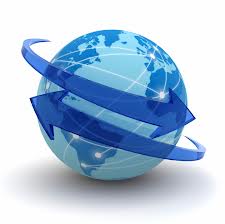On 15 December
2009 the Federal Government announced their intention to introduce
mandatory filtering for Australian Internet Service Providers (ISPs) for
certain types of content largely relating to Refused Classification (RC)
material otherwise known as rated content.
At the end of 2012 however the Federal government did a back flip
abandoning their controversial internet filtering plans. The government instead has struck a deal with
Australia’s
ISPs to block approximately 1400 sites that are on an Interpol blacklist.
Australian ISPs should not be forced to filter internet
content. The filtering of internet content by ISPs can be seen as threatening a
citizen’s rights to freedom of information.
I do believe, however, that more needs to be done to protect Australians,
specifically children, from certain restricted content available on the
internet.
There are many issues relating to the governments planned
filtering and blocking of offensive websites.
One of these issues is the effect on law enforcement. The blocking of these websites in effect
blocks the efforts of law enforcement and lessens their ability to track
offenders through techniques such as computer forensics. ISP
filtering also threatens free speech, and could potentially blacklist innocent
sites as well as offensive sites.
The blocking or filtering of certain websites also works to
give parents a false sense of security.
The government simply can not guarantee that they can successfully block
every offending website. As technology continues to advance it will be an uphill
battle to try and keep up with the steadily increasing number of offensive
sites in cyber space.
The planned filtering of ISPs or blocking of offensive
websites alone is not enough to ensure the protection of vulnerable parties from
certain content available on the internet.
It is important that further restriction and laws are put in place in
hand with tougher sentencing for perpetrators to deter the sharing of RC
material online.

No comments:
Post a Comment